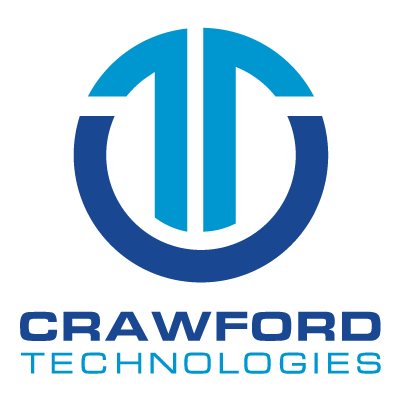Dealers identify best practices for sales success.
At DocuWorld, DocuWare’s partner event in Houston this past spring, an executive panel featured three dealer leaders engaged in a dynamic Q&A focused on office-technology industry transformation via business process automation (BPA) software. “Your software business can complement your A3 copier business and maybe your managed IT business, too,” stressed Eddie Steelman, owner of Smart Technologies of Florida in Sanford and a DocuWare partner for the past nine years.
If you’re going to diversify with software and BPA, you have to do it right, advised Steelman, a self-described millennial owner whose Daytona Beach-based dealership serves Central Florida. “The last thing any dealer wants are cancellations after year one or year two,” he said.
So, what is the right way to add software subscriptions and BPA services to your business mix? During a 90-minute breakout session, Steelman and two other dealers shared valuable insights into how their organizations have driven growth within this segment. Attendees discovered vital strategies, challenges, and triumphs. The trio of seasoned executives agreed that the evergreen model of subscription auto-renewals is one of the main benefits of software sales.
Enterprise content management (ECM) is a core foundational pillar of UBEO Business Services based in San Antonio, Texas. “We also offer office equipment but have learned how to motivate reps on the software side by not splitting compensation,” explained Erick Miller, VP of technology services. “We comp on labor, which our reps can mark up,” he continued, “and we also pay them on renewals.” Miller favors UBEO’s ECM model partly because it promotes off-cycle selling in the case of standard, five-year contracts.
In the Pacific Northwest, Kelley Create is a large Toshiba dealer and BCF Software partner serving clients in Washington, Oregon, Montana, Idaho, and Alaska. “We changed how we sold DocuWare five years ago,” reported Jason Ostendorf, VP of software solutions. In 2019, the dealership transitioned to a solution-based selling strategy. Ostendorf agreed with Miller that split can be a not-so-popular word when it comes to paying employees. “Splitting compensation with sales reps is a demotivator,” he pointed out. “Instead, we try to keep the specialist out of the equation because it presented a nightmare scenario to pay them both.”
Before this shift in thinking, there was constant infighting against a common misperception: that there is less money to be made when selling software and BPA services. This myth was particularly frustrating for the Kelley management team, which worked diligently to restructure their compensation model to include big specials so that reps could make money. “We were writing some commission checks for $40,000 or $50,000,” recalled Ostendorf.
Pro Building Blocks
Steelman admits to making mistakes, including letting copier salespeople control the software deals for the first five to six years. “Eventually, we took it out of their hands,” he said. Steelman has learned that transparency builds trust. That’s why Smart Technology now provides software pricing upfront.
“We sell blocks of time for professional services,” Steelman explained. To support document management software like DocuWare Cloud 4, which includes four client users with 20 gigabytes of storage, Smart Technologies of Florida may charge $8,000 for a 40-hour block (at a rate of $200 per hour) or $2,750 for 10 hours (@ $275/hr.).
The dealership keeps track of time, which is reported back to its clients. “We make the most profit from charging for labor in this way,” noted Steelman. “It’s more than enough to compensate our reps and the back-end people, too.” The pro-service hours add up: 100 hours per month equates to $20,000 on top of an annual $95,000 DocuWare subscription.
Creativity sometimes comes into play with compensation plans. To stress the importance of logging their hours, Smart Tech incentivizes its workflow engineers by paying out bonuses. “If someone burns through, say, 32 hours in a week, he or she might earn an extra $200,” noted Steelman.
Of course, a four-seat program is the tip of the proverbial software iceberg. From 15 to 40 or 100 and more users is the dealer’s sales goal. Prospects typically target their sweet spots within that range. “We spend just as much time [on closing the sale] no matter the user numbers, but four can lead to 15,” observed Ostendorf. “The key is getting the check and then upgrading.”
Bundling software with professional services is part of Kelley Create’s strategy, too. “We don’t split them up,” Ostendorf stated, adding that semantics matter. “We sell BPA services. Calling it doc management cheapens the value of our proposition.”
In addition to compensation adjustments, investing in ongoing education is another way for dealer owners and managers to earn the trust of their sales representatives. “UBEO has 200 reps nationally, and we keep their attention by training them on day-to-day accounts payable and human resources processes,” shared Miller.
The software/BPA knowledge gap for sales reps also can be closed by utilizing the very solutions you’re selling. “We force our reps to use DocuWare,” said Steelman, “but we do it in a way that brings them value. It’s a win-win when we can enhance the lives of copier sales reps who aren’t comfortable talking about accounting.”
More Do’s & Don’ts about Business Process Automation Software
Some challenges persist. The longer sales cycles for software products can test the patience of traditional copier reps. “A complex implementation could take up to 90 to 120 days,” revealed Miller. On the customer side, he added that identifying pain points is essential. Is the prospect triggered more by data entry or chasing invoices?
Subscription renewal pricing also can pose a challenge. Unlike copiers, the price of software generally doesn’t go down. “If anything, software prices will go up,” noted Miller, “especially if users are added.” When renewing contracts, define the number of seats. He also emphasized the importance of a quarterly business review to reveal and report on usage and data utilization. Zero reports can signal a death knell. “Clients won’t renew if their employees aren’t using the software and/or if data isn’t being captured,” he warned. “Find out how many gigs their database is and determine if it is being underutilized.”
Lastly, dealers should beware of posers disguised as BPA software shoppers. “There are VAR [value-added reseller] poachers lurking and looking to snatch up business,” Miller said. This is where he says loyalty comes into play. Incumbent customers who have invested time upfront know what they’re getting with DocuWare’s pricing, which is listed at MSPR (the manufacturer’s suggested retail price).
Ostendorf closed by concurring with Steelman’s transparent approach. Usually able to smell the phonies from a mile away, Kelley’s team employs a litmus test of sorts. “Whether our estimate is $5,000 or $20,000 monthly, we’re upfront about pricing even before a meeting is set,” he explained. This approach saves time and resources by “chasing away the tire-kickers” who are sneakily trying to gauge what you may charge.
The session ended with three final software/BPA don’ts:
- “Don’t get in it if you don’t want to do your own professional services.” – Steelman
- “If your goal is to sell more copiers, software won’t be profitable for you.” – Ostendorf
- “Don’t sell software as a product with the focus on prospect operating expenses. Selling ROI closes deals!” – Miller





